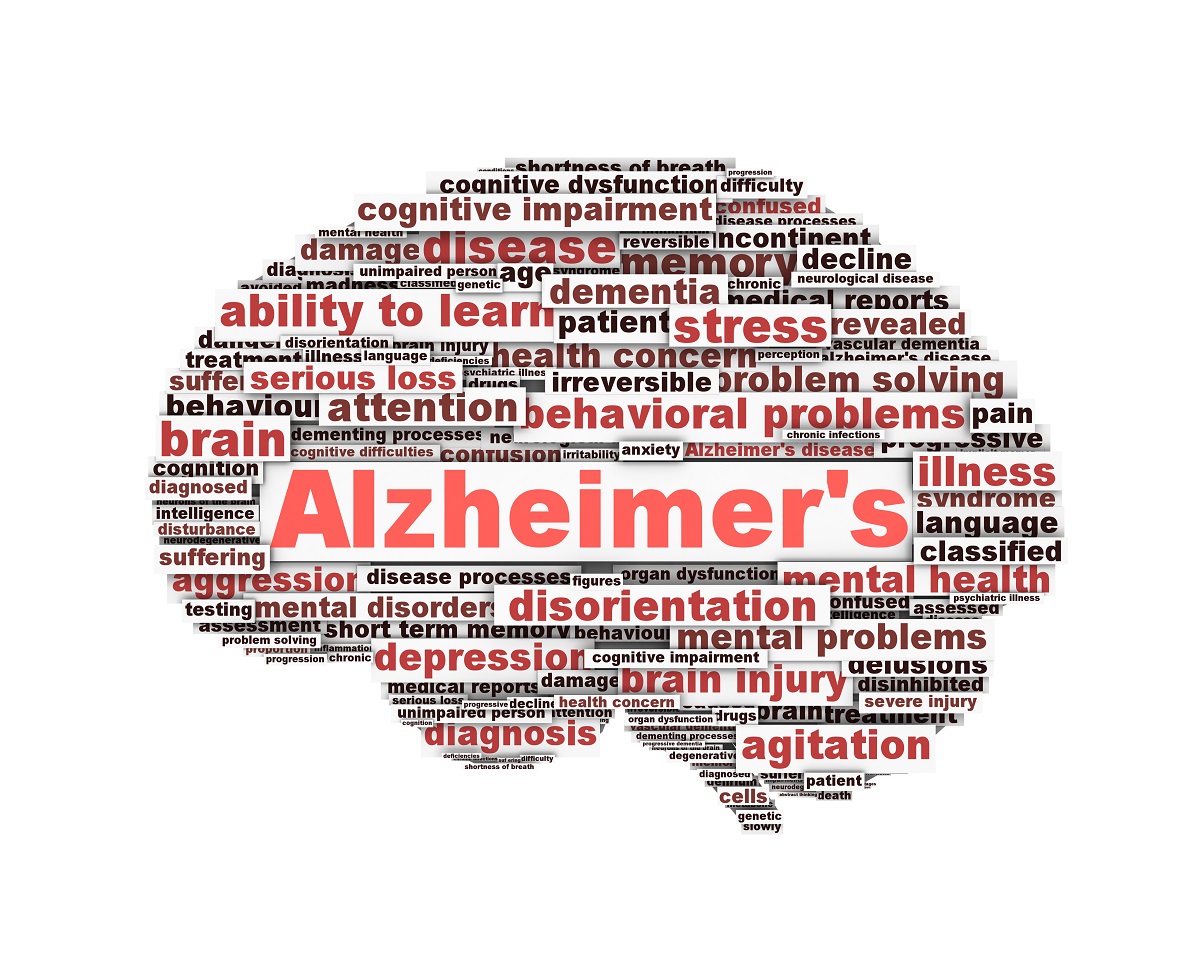Memory loss and other cognitive changes characterize Alzhiemer’s and other types of dementia, but underlying medical conditions, some medications, and environmental influences can trigger behavioral symptoms or make them worse. Indicators include agitation and aggression, sleep disturbances, hallucinations, and delusions.
Nine in 10 dementia patients develop behavioral disturbances throughout their illness. This is one fact that caregivers must know if they look after people with brain disorders like Lewy Body dementia, frontotemporal dementia, and Alzheimer’s disease (the most common dementia case). Knowing what triggers behavioral changes is critical in helping manage their conditions and prevent outbursts.
What Can Trigger Behavioral Symptoms in Alzheimer’s Patients?
Alzheimer’s disease is marked by cognitive decline and memory loss. However, behavioral and psychological symptoms of dementia are “the most disruptive” aspects of this disorder and other dementia-related conditions, according to healthcare professionals.

The most common behavior changes are:
- Aggressive Behavior. Alzheimer’s patients may display physical aggression, such as biting, throwing objects, and hitting other people. They may also be verbally aggressive — they may swear, scream, and make threats.
- Apathy And Depression. Three in 10 people with Alzheimer’s are diagnosed with depression, which can cause them to lose interest in people and things they’ve previously enjoyed.
- Hoarding, Hiding, And Losing Things. Because of their short-term memory loss, people with Alzheimer’s and other forms of dementia may forget and misplace their belongings. They also tend to steal and stockpile items to gain a sense of control over their situation.
- Psychosis. People with dementia are prone to mental health concerns — including delusions (belief in unreal things) and hallucinations (hearing, seeing, and feeling things that aren’t actually there).
- Repetitive Behavior And Restlessness. They also exhibit repetitive movements (e.g., constantly tapping their fingers, fidgeting, walking up and down, and pacing) and frequently feel irritable or agitated.
- Sleep Disturbances. Common sleep problems among dementia-affected individuals are hypersomnia, daytime sleepiness, and fragmented sleep.
- Wandering. Alzheimer’s and dementia patients are likely to wander off, especially during the late stages. They may also experience sundowning or getting confused and displaying behavioral symptoms during late afternoons or early evenings.
3 Types Of Behavioral Triggers For Alzheimer’s Patients
Below are the three types of behavioral triggers prompting the behavioral changes above:

1. Underlying Medical Conditions
Dementia is a group of brain disorders characterized by cognitive impairment, including one’s ability to communicate. If patients feel physical discomfort or pain brought about by an underlying health illness (including geriatric conditions), they may convey it via behavioral changes.
For instance, if they have a urinary tract infection or constipation, it can cause them to have poor concentration or feel more agitated. If they have diabetes, ulcer, or congestive heart failure, it may lead to changes in sleeping patterns.
When someone with dementia exhibits drastic behavior changes, you need to consult a healthcare expert to determine if a still-undiagnosed medical condition triggers these.

2. Medications
Dementia care providers and family members should know that managing brain disorders requires a thoughtful approach. Certain medications — including antipsychotic drugs — given to patients can cause side effects that trigger aggressive behavior, among other types.
In fact, the American Geriatrics Society doesn’t recommend antipsychotics as the first treatment option. According to research, drugs such as Aripiprazole, Olanzapine, Quetiapine, and Risperidone don’t actually minimize behavioral disruptions. Furthermore, they can cause unwanted effects like confusion, drowsiness, and stroke.
Experts even prohibit older adults (65 years old and above) from taking more than three medications that interfere with their brain and nervous system.
Also, take note that there are types of drugs that are considered risk factors for dementia, including anticholinergics and benzodiazepines. This means that continued use of these can make you more likely to have dementia, such as Alzheimer’s, later in life.

3. Environmental Influences
Patients with dementia may develop behavioral concerns fueled by different environmental factors. When surrounded by stimuli (e.g., loud noises, too many choices), they will experience overstimulation that can prompt anger, frustration, or withdrawal.
Changes in the environment that they’ve become familiar with can also cause behavioral disturbances. If their routine gets disrupted or they transition to a new home, they can be restless and agitated.
The approach of their caregiver, loved one, or healthcare provider can also influence their behavior negatively. Patients who feel like they’re not properly cared for or neglected can become combative — physically and verbally.
While caregivers shouldn’t make them feel unimportant, they must also be careful not to interfere with the patient’s personal space. If they perceive a lack of personal space, they are more likely to be sensitive and aggressive.
What Are The Symptoms Of Worsening Alzheimer’s Disease?
Alzheimer’s gradually progresses from early to middle to late stage, according to the Alzheimer’s Association.
In the early stage, patients may experience difficulties remembering new acquaintances’ names, coming up with the right words, and performing regular tasks. They may also have trouble planning and organizing, and occasionally lose or misplace valuables.
In the middle stage, their forgetfulness becomes more evident. They may find it hard to recall important events and even personal history. They can get confused, disoriented, and feel moodier. They also demonstrate changes in their personality and usual behavior.
Late-stage Alzheimer’s is when they would need round-the-clock guidance. Apart from having difficulty speaking and communicating, they may also lose their physical abilities, such as walking and swallowing.
Why Is Pain Often Overlooked As A Case of Dementia
Among dementia-affected individuals, pain is commonly overlooked and undertreated.
Primarily, it’s because patients — especially those in the later stages of dementia — lack the faculties to convey it properly. The decline in their cognitive functioning can make them unable to understand why they feel pain and how they can properly communicate their situation.
If you’re a loved one of a dementia patient or work in a nursing home, you must be proactive in asking them and be specific about it. For example instead of asking, “Where does it hurt?”, you can say, “Is your stomach aching?” or “Does it sting here?”
It will help if you’re also wary of non-verbal signs of pain. These include facial grimacing, distressed gestures, restlessness, and moaning with movement, among other behavioral problems.

Manage Behavioral Problems In Alzheimer’s and Other Dementias
The recommended course of action for dementia and Alzheimer’s patients is to rule out medical conditions first and manage symptoms of dementia with non-drug interventions. Below are some practical tips you can try:
- Family members and professional carers should focus on improving their general well-being and quality of life. Observe if they have unmet needs and address those accordingly.
- Create an environment with an air of familiarity. Simplify daily routines and modify their surroundings to limit distractions and stimuli.
- It also helps to install visual cues to help them navigate their space safely — and install alarms and locks as a preventive measure in case they attempt to wander off.
- Assist in implementing their care plan (including proper medication intake, diet, and exercise) and involve them in calming activities like art and music therapy sessions.
- Reassure them by displaying positive and calming verbal and body language.
Preventing Outbursts in Alzheimer’s Patients
Caregivers working in residential settings and care facilities should be knowledgeable about what triggers one’s aggressive behavior. Understanding the immediate cause will help you address it and effectively prevent outbursts in the future. Doing the tips mentioned above will also help.
When they do experience dementia outbursts, remain calm and work to downplay the situation to protect the patient’s privacy. Don’t argue. Instead, give them space and time and redirect them to meaningful distractions.

